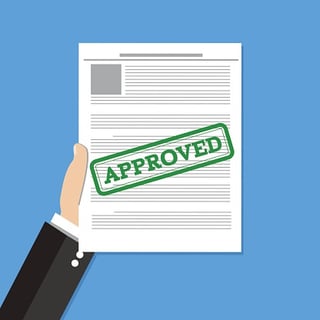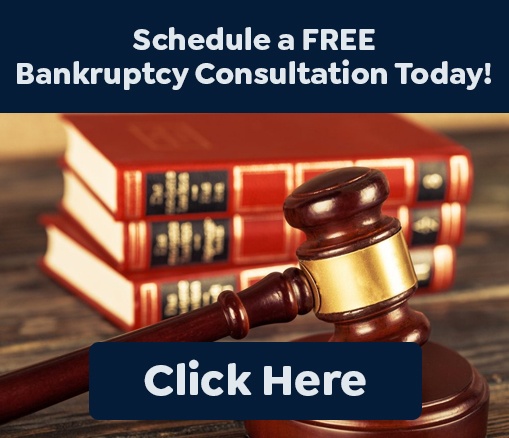Scura, Wigfield, Heyer, Stevens & Cammarota Blog
- Blog
Do I 'Qualify' for a Chapter 7 Bankruptcy in New Jersey?
 Clients often ask if they qualify for a Chapter 7 bankruptcy. People may not know much about bankruptcy before calling my office, but there is a general anxiety as to whether they will be "forced" into repaying some of their debt.
Clients often ask if they qualify for a Chapter 7 bankruptcy. People may not know much about bankruptcy before calling my office, but there is a general anxiety as to whether they will be "forced" into repaying some of their debt.
Chapter 7 or 13 Bankruptcy in New Jersey?
A potential client's concern is, are they able to walk away from all of their debt in a Chapter 7 liquidation, or will they have to file a Chapter 13 where the debt is reorganized (but generally paid pennies on the dollar). There are certain advantages to a Chapter 13 over a Chapter 7, but let's assume for a minute that those advantages are not present and our subject debtor is the ideal candidate for a Chapter 7 bankruptcy.
Bankruptcy Means Test
The Bankruptcy Code provides that any natural person that resides or has a domicile, a place of business, or property in the United States, or a municipality, may be a debtor. 11 U.S.C. s 109(a). Following the 2005 Amendments to the Bankruptcy Code, however, congress added what has been commonly referred to as the "Means Test". The Means Test is meant to weed out those individuals that presumptively can afford to pay back at least a portion of their debt. The Means Test takes in consideration the total household income of the debtor (not just the income of the person filing bankruptcy). Next we determine what the median income is for family the same size of the debtor's household and the state of residence. If the total income (less certain types of income such as social security) is below the median income level, the test is over. If it is above, then we have to continue with the remainder of the Means Test.
Enjoying this blog? Here's another you may like: Overview of the Bankruptcy Process
The Means Test subtracts from the total income all necessary payroll deductions (taxes, pension payments, union dues, etc.). It further subtracts necessary expenditures such as housing, transportation, health care, groceries, utilities, etc. It is important to note here that these expenditures are not what the debtor actually spends, but what the data collected by the IRS determines is typically spent. Certain contractually obligated expenses, such as the mortgage payment and car payments, are considered if they exceed the allowance provided for in the IRS guidelines.
Special Circumstances
If there are special circumstances that warrant exceeding the IRS guidelines, such as the cost for caring for a disabled child, those costs may also be deducted. If, at the end of all these deductions, there is money left over, it is considered "disposable income" and the debtor is presumed to not qualify for a Chapter 7 bankruptcy. The disposable income is multiplied by 60 and this amount is the amount presumed must be paid back to the unsecured creditors.
Of course, the Means Test and definition of disposable income can become much more complex than my simplified discussion here. And there are reasons why, even if a debtor did qualify for a Chapter 7, than he or she may prefer to file a Chapter 13. Rarely is there a cookie-cutter case and every scenario should be discussed in detail with an experienced bankruptcy practitioner.
Contact us for help with your Chapter 7 bankruptcy in New Jersey.

David L. Stevens
I have a passion for what I do. There are few things I enjoy more than helping good people and viable businesses find solutions to overwhelming debt.
Share Article
Need Help? Contact Us Today!





Lists by Topic
- Bankruptcy (320)
- Personal Injury (95)
- Chapter 13 (52)
- Chapter 7 (50)
- Debt Management (50)
- Foreclosure (47)
- Accident (32)
- Car Accident (26)
- Chapter 11 (24)
- Business Bankruptcy (19)
- Credit (18)
- Insurance Claims (17)
- Business Law (12)
- Litigation (12)
- Employment Law (11)
- Probate and Estate Law (11)
- Damages (10)
- Medical (10)
- Product Liability (10)
- Workers Compensation (10)
- Attorney (9)
- Consumer Bankruptcy (9)
- Commercial & Residential Real Estate (6)
- Slip and Fall (6)
- Contracts (5)
- Premises Liability (5)
- Repossession (5)
- wrongful death (5)
- Video | Bankruptcy (4)
- Bankruptcy Cost (3)
- Corporate Litigation (3)
- Trial Law (2)
- student loans (2)
- tax (2)
- Attorney Fees (1)
- COVID-19 (1)
- Certified Civil Trial (1)
- Dog Bites (1)
- News (1)
- Relocation Assistance (1)

